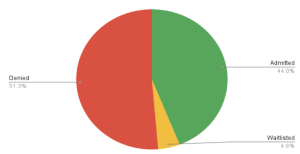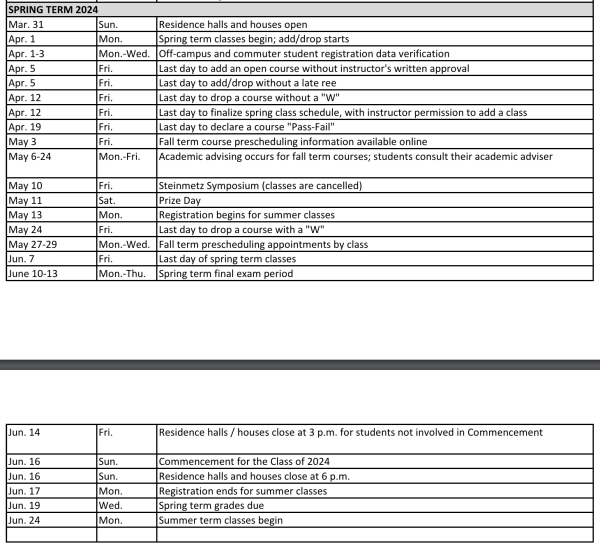Forgoing vaccinations will keep archaic diseases alive
February 2, 2019
It’s hard to believe that even in the year 2019, there are some of us who prefer to live in the Stone Age. Modern medicine is something of a miracle, with new cures to illnesses once thought to be inconceivable to remedy frequently emerging.
However, new advancements in medicine remain a mystery because we are all so different and thus react distinctly to particular drugs. Just as well, many medications come with a host of side effects that can be seemingly unpleasant, though arguably better than having a condition worsen or become fatal.
Perhaps, in an ideal world, we could prevent ourselves and others from such diseases by developing a heightened system of immunization. Maybe we could introduce a very small amount of weak or dead germs to our bodies such as viruses, bacteria or toxins that can cause disease so that we can prepare our bodies to fight off infections faster and more effectively. We’ll call it… a vaccination.
Vaccines are safe and effective and there is little to no reason for someone to avoid them.
My apologies for the sarcasm, but it is representative of the idea that although vaccines have been around for more than 200 years, many still regard the treatment as a form of voodoo-hippy magic responsible for the affliction of prenatal autism, which is just not true.
In the past few decades, autism rates have risen quite remarkably in developing countries, worrying families and public health researchers alike. However, despite the scrutiny which vaccinations have received as being a root cause, scientists and physicians would agree that no such correlation exists between the development of autism and the vaccination treatment. Still, many families refuse to acknowledge the safety of vaccines and will choose to forgo immunization, a practice which not only puts their family at risk of infection, but also everyone in their general vicinity.
In fact, as of Saturday, there were 31 cases of measles in Washington’s Clark County, a highly infectious disease, which fortunately, has had a vaccine to fight off its effects for 56 years now. Yet, here we are, it’s 2019, and we are still battling a prehistoric ailment all because of a few people who are unable to trust modern medicine.
A majority of the cases in the area consist of children between one and 10 years old who have not been vaccinated most likely because their parents wanted to keep them “safe.” Yet, the very contagious disease can often be fatal among younger children. Since the outbreak has been identified on January 18, the illness has been spreading across Washington, creating an “extreme public health risk that may quickly spread to other counties.”
With two doses of measles-mumps-rubella vaccine, which children in the U.S. are supposed to get before they enter kindergarten, the disease can easily be prevented. With that said, the rate of vaccine exemptions, or the number of students able to attend kindergarten without a vaccination, has increased in places such as Oregon from 5.8 percent in 2015 to 7.5 percent in 2018. According to the Washington Post, 7.9 percent of children had gotten exemptions from vaccines in Washington’s Clark County. These two states, however, are exceptions to the national average, which settle around two percent of children.
These numbers, small as they may seem, still allow for the perseverance of the disease throughout time. Vaccines are safe and effective and there is little to no reason for someone to avoid them.
Still, it is challenging to say that everyone should be required to get a vaccine because unfortunately, such practices may contrast one’s religious beliefs.
However, it should be said that such religious liberties should only extend far enough to the point where it does not put anyone else in direct danger. It is merely unethical to have such unrestricted ability that can make others fatally sick.
Diseases like measles do not need to be a thing in today’s world. We must do what we can to protect the people around us and maybe we can eliminate the threat of measles, but until then, we must worry that the air we breathe does not contain harmful strains.








